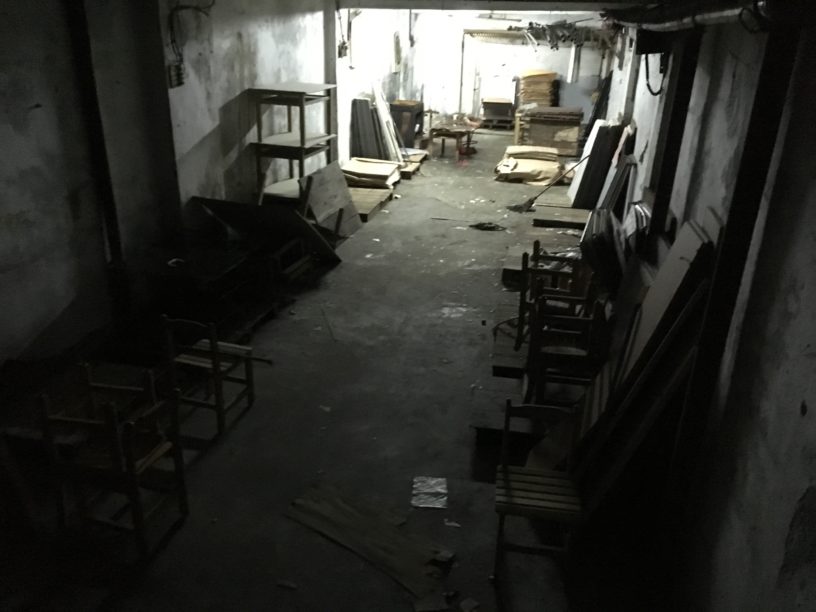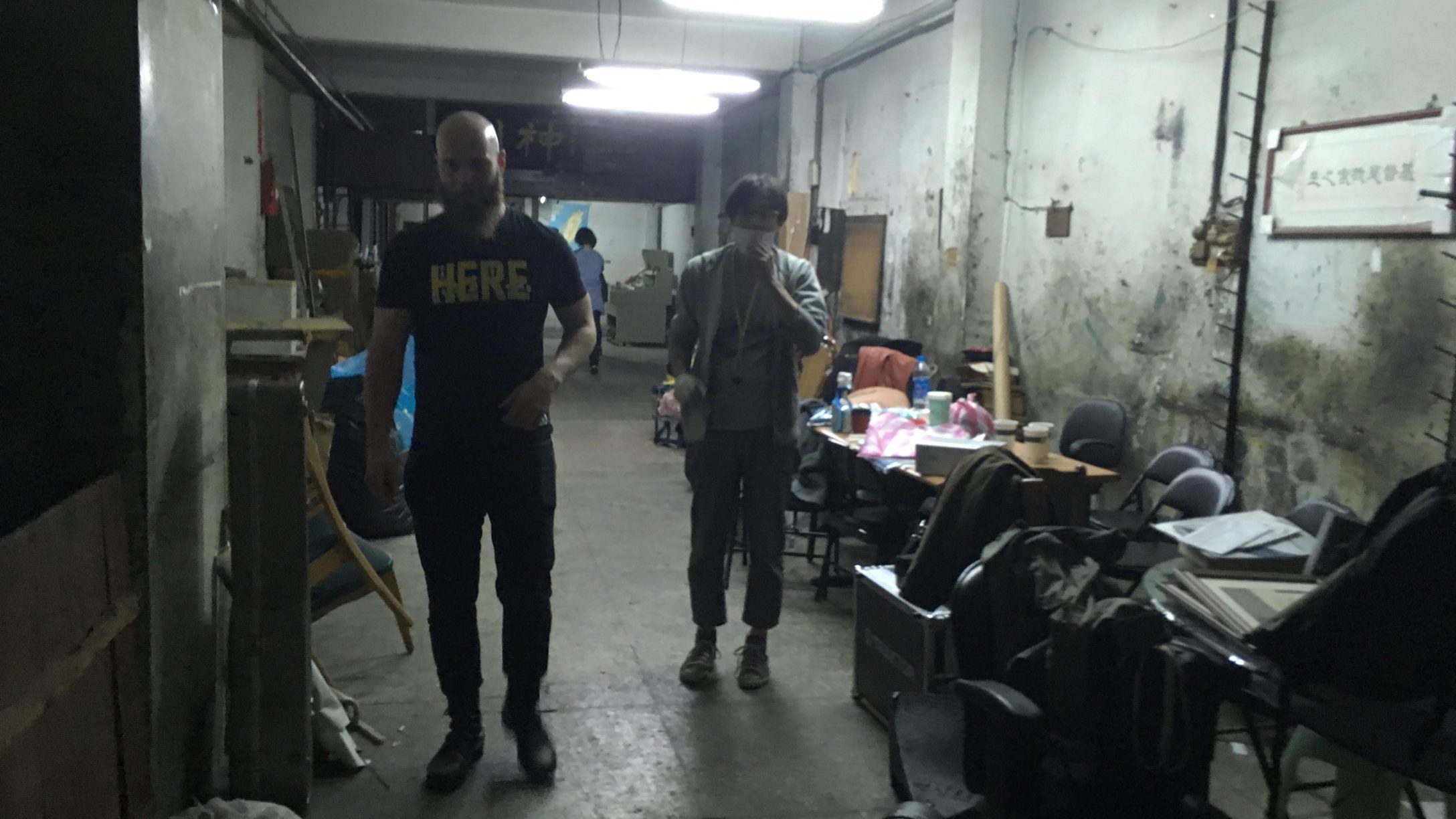There are few activist spaces left in Taiwan. In the years since 2016, when presidential elections resulted in the election victory of Tsai Ing-wen of the Democratic Progressive Party (DPP), a lot of younger activists seem to have decided that they could move on with their lives. It can be exhausting, even traumatic, to spend all this time protesting on the street, and often leads to burnout. And so there’s been a gradual decline in the number of meeting places for activists.
After the Kuomintang’s unexpected comeback in last year’s November midterms, presaging a possible further resurgence in next year’s elections, it worries me that there are only a few such spaces left.
For some time, I’ve been thinking about creating a gathering-place for activists myself. But while it is the dream of every “wenqing” (文青) in Taiwan to own a coffee shop, given my love of dive bars, I’ve always wanted to open a bar. An activist dive bar…Yeah. Alright, not the most profitable-sounding business idea. But that was the notion behind our attempt to create something out of the Factory—an old printing factory in Wanhua, the oldest, poorest, and most historic district of Taipei, located on Guiyang Street, which is the first street in Taipei, the origin of the city.
It turned out that an activist colleague, Y., had a connection with the trio of old men who were managing the space: the factory’s original owner; a wealthy businessman who had run a drugstore before retiring; and a Presbyterian priest. All three had grown up on the street or somewhere near it. With the city government expected to come in and redevelop the area within the next decade, they thought it was a shame to let the space go to waste. In the meantime, why not let a group of young people take over the space and do something interesting with it?
The original owner, a man in his eighties or nineties who still lived upstairs from the Factory, was a first-generation waishengren, one of the 10% of the population descended from those who came to Taiwan with the Kuomintang in the 1940s. But the other two were benshengren, descended from the earlier waves of Han migration over the past several hundred years, who make up 88% of Taiwan’s population. They were strongly pro-independence—the Presbyterian church has historically been associated with support for the independence-leaning DPP, which emerged from the Taiwanese democracy movement.
They seemed to support our ideals, as a group of pro-independence young people. Or at least, that’s what we thought.
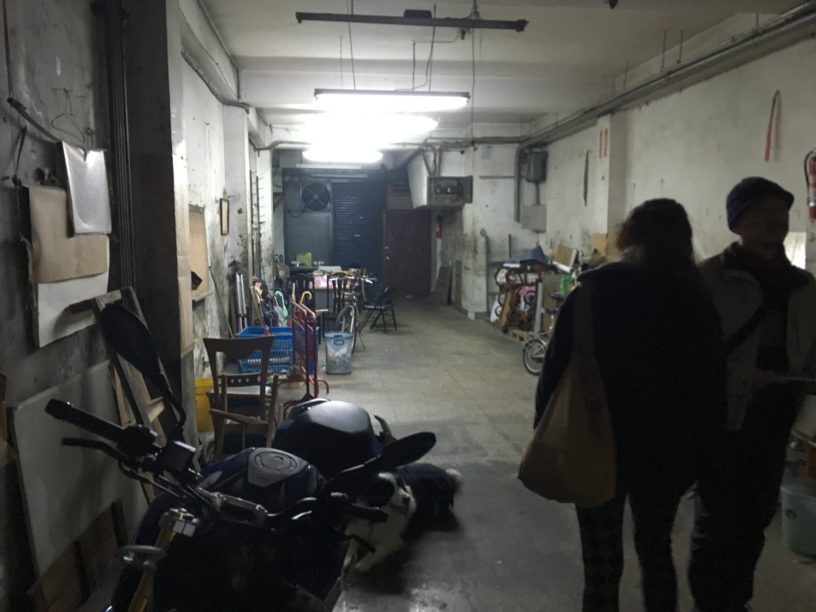
We thought we could turn the Factory into an activist art space, since it was large enough to serve multiple roles. We could use it as a gallery, a bookstore, a coffee shop/bar, and we could also host performances in the basement. The space was huge—around 60 to 80 meters in length—and it had real history.
The Factory looks like something torn from a Tsai Ming-liang movie. The calligraphy hanging inside was by Chiang Kai-shek’s former calligrapher and, though we are far from fans of Chiang—quite the opposite—we still thought the history interesting and worth preserving. We planned to incorporate this theme into our new name for the space, and also to localize it in terms of Taiwanese identity.
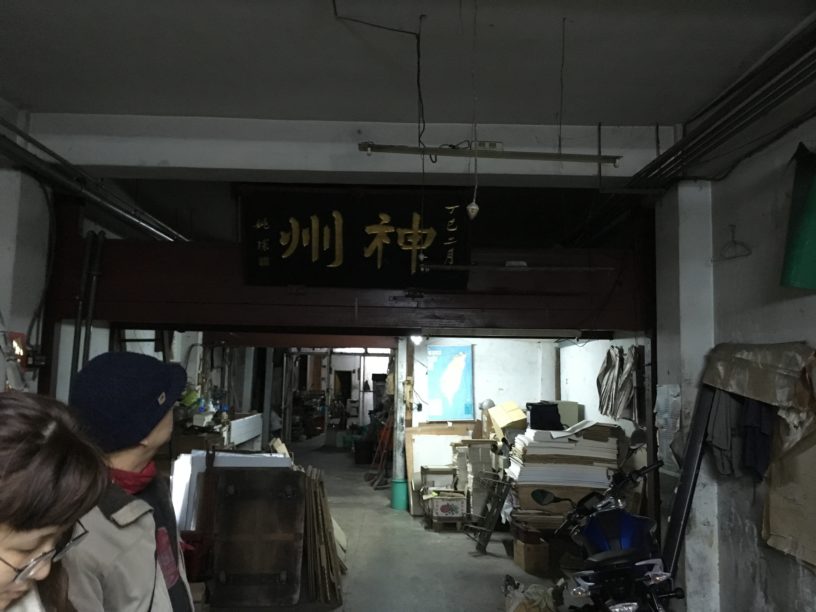 Brian Hioe
Brian HioeThe first sign that things were going to go very wrong came when decided to throw a clean-up party for the space, to remove all the refuse and old furniture.
We brought over a set of speakers and, since I DJ, I lugged my mixer over from home. My friends and I roped in twenty or so people to help out. We prepared drinks and food. We’d just need one of the managers to let us in on the day.
The retired businessman liked to brag that he was once known as one of the “Five Greats” (天下五絕) among the Wanhua drugstore owners, a term borrowed from Jin Yong’s wuxia martial arts novels. He was evidently referred to as the “Evil of the East” (東邪)—the epithet of the anti-hero character among the Jin Yong’s Five Greats—because his store was in eastern Wanhua. So let’s call him that. We usually referred to the original factory owner as Boss Su (蘇老闆), or at least, that’s what I’ll call him here. The Priest, we usually just called Priest (牧師), his buddies usually referred to him as that as well. It’s only with some difficulty that I remember what his actual name was. The Three Caballeros, as it were.
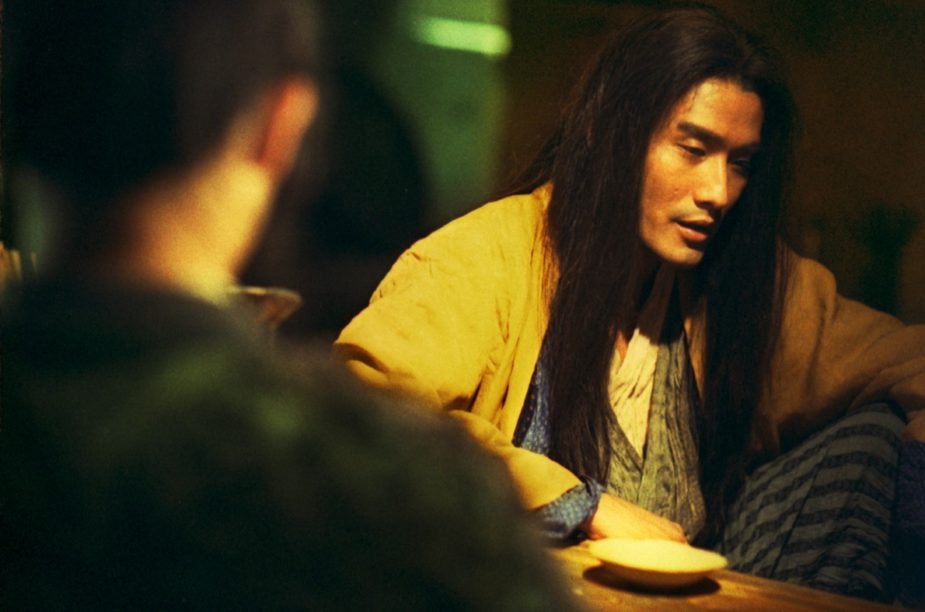 Screenshot: YouTube
Screenshot: YouTubeOur plan was simple enough. But the day before the clean-up party, the Evil of the East suddenly told me he’d been unable to reach Boss Su by phone. What had happened?
“He might have gone back to China,” he told me. “Sometimes….he’ll go back and visit China and not tell anyone.”
Uhhhhh, okay? Boss Su, a man that as far as I knew lived alone and had no family, would spontaneously visit China without telling anyone? Where would he go in China, and how?
“What if he’s just fallen and can’t get up?” I said. “He’s getting up there in terms of years, after all.” Boss Su was a good deal older than the other two.
“That’s true,” said the Evil of the East.
“You know what?” I said. “I’ll just go take a look myself.”
I had moved to an apartment a five-minute walk from the Factory the previous month, in anticipation that this would make it easier to manage the space. So I walked over to the Factory to see if there were any signs of life. No lights. Nothing.
So the next morning, on the day of the clean-up, I wondered if we would have a large crowd gathered outside, but not be able to get in. What if Boss Su had tripped and fallen? He could have just been lying on the floor for days… he might even be dead. Would we discover his corpse on the inside?!
The Evil of the East was out of town on business, but he’d given us his permission to break down the door to make sure Boss Su was all right, if it came to that.
“Let’s give it another twenty minutes,” I said.
We came this close. But to our surprise, after fifteen minutes, the door unlocked on its own and a man in his forties wandered out.
He was Boss Su’s son. We’d had no idea he was living there. None of the three old men had indicated that Boss Su even had any family. Su’s son was entirely unaware that his father and his buddies were planning on letting a group of young people turn his home into an art space. He took all this weirdly in stride, though.
It later emerged that Boss Su had just forgotten to charge his cell phone for days on end. I began to realize that this crew of old people were rather….off-key.
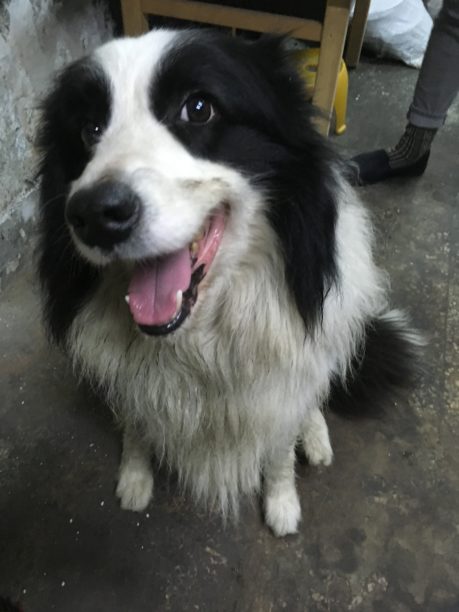
Though the Evil of the East and Priest were supporters of President Tsai’s party, the DPP, they preferred William Lai, Tsai’s former premier and the former mayor of Tainan, to be the party’s presidential candidate in next year’s elections.
The pan-Green independence camp—the political coalition affiliated with the DPP—is split between Lai and Tsai. Very few young people support Lai, who is by far the more socially conservative of the two. Lai supporters are generally older, in many cases opposed to gay marriage, and are often said to dislike Tsai, Taiwan’s first woman president, out of misogyny.
In the chatroom we’d set up for our project on Line, the preferred social messenger app of many old people in Taiwan, every day the old folks would send us badly-sourced and factually incorrect internet memes, so-called “senior images” (長輩圖) in support of Lai and not Tsai.
The Evil of the East sent us a massive essay on the subject, consisting of 25 individual photos of pages that he’d had printed out. Mixed in with these photos were text messages about business matters regarding the Factory space.
One night at 1:00 or 2:00 a.m., the Evil of the East randomly sent us a ten-minute video of himself with no shirt on, ranting about Taiwanese independence. He seemed to be sitting on a toilet. The video suddenly cut off with him in mid-sentence. It became exhausting to read through dozens of these messages every day.
Eventually I decided to interview the Evil of the East and the priest for an article I was writing for an art publication on the history of the area, since both were lifelong residents of Wanhua, upon which I discovered that they were both quite homophobic. They believed that sex robots would kill us all once gay marriage was legalized in Taiwan, because humans would begin marrying non-human objects, such as sex robots. In their view, sex robots would inevitably develop sentience and rise up against their human overlords—and they would be successful in this robot revolt, due to knowing all of our weaknesses from sleeping with us.
Although I did find it all highly amusing at the time, I had concerns. Could we really work with a group of homophobes? I asked Y.
Y., an out lesbian, is also a member of their church, which is how she knew these guys to begin with.
Gay marriage was voted down in a referendum last November, though the legislature later voted to legalize same-sex unions as a form of civil partnership. Y. said that the political environment demonstrated the need to dialogue with the older, more conservative generation. She isn’t alone in this view. After the defeat of progressive political causes in the referendum, many youth activists had been discussing the need to break out of the so-called “echo chamber” (突破同溫層) to dialogue with those of different age groups and backgrounds. To be in “touch with the grassroots” (接地氣).
What did I have to say to that? She was the one who had to put up with their shit directly, after all. We decided to keep at it.
A period of chaos succeeded this good-faith resolution between me and Y. The Three Caballeros had originally told us that they would pay for renovations and that the rent would be low. Instead we suddenly learned that we, a group of penniless artists and activists, would have to pay for the renovations, and that the rent would actually be quite high. They seem to have realized that we could bring in a large group of people, and decided that meant they could charge high rents. They seemed to see art as an easy way of making a fast buck.
Then, we learned that a group of friends who were being driven out of their art space in northwestern Taipei had been approached by the Caballeros with an offer to take over the Factory. Upon realizing that they were our new landlords, these friends immediately told me about the offer.
Su’s son, whose relations with his father were strained, began to intimate that he, and not his father, was the actual legal owner of the space, and that we would need to sign a contract with him. He took to arranging for real estate agents to visit whenever I was there, in an apparent effort to intimidate me. The Three Caballeros assured me that they were the owners of the land, but I didn’t find them very convincing.
When I told this story to my cousin, a lawyer, over lunch one day, he offered to help me look into title of the property. It emerged that there were around twenty names on the property registration!
When we confronted the old men about this, at a meeting that became heated very quickly, they insisted that they were the landlords, and that the son had a mental illness which caused him to think that he was the owner of the space, and also made him prone to fits of violence. They also said that he had once broken his father’s arm.
They promised to prove their claims, and assured us that they would, in fact, be paying for the renovations, and that we would come to an equitable arrangement regarding the rent.
However, in the weeks that followed, they were unable to produce the promised proofs. And could we be safe, knowing that there was a violent, dangerous man who lived upstairs?
It all came to a head when my friends who were being kicked out of their art space asked if they could store some of their stuff temporarily at our space. I said yes. Why not? They had watched out for me in the past, so it was time for me to watch out for them. We all knew each other from the world of social movements, anyway.
I was at a labor conference in Taipei when my friends from the other space called me. I stepped out of the conference and called up the Evil of the East to let him know about the storage arrangements for my friends.
But the Evil of the East balked at the idea immediately, saying that he didn’t know or trust these people. I tried persuading him first, by explaining that these were old colleagues of mine with shared values regarding Taiwanese independence. But when he refused to budge, I revealed that I knew he’d tried to replace us with them. And then we got into a twenty-five minute shouting match over the phone.
If you’re a man, sometimes these older, patriarchal Taiwanese men respect you more if you aggressively shout them down. Though that’s not really me, it’s a skill I’ve had to learn in order to get through these situations over the years, so I tried that.
But shouting him down didn’t work this time. Eventually, he just hung up on me. After that, he changed his username on Line to “A Stupid Person” (愚拙的人). I guess he was trying to express that he was stupid for trying to work with us, painting himself as the victim.
Well, I was done. If they were going to react this way to simply storing some stuff in the space, it was too risky to continue the project with them. Indeed, some in our team had already been telling me that we should end the relationship.
I called Y. to tell her what had happened, and apologized for losing my temper with the Evil of the East. I knew they would start blaming her next. Sure enough, they had already started doing that.
I spent the next three days binge drinking. Just that night alone, I went to three different drinking sessions with three different groups of friends. I spent the rest of the conference I’d been attending hung over. Not the smartest move, but the experience was really disappointing for me. I had put six months of effort into the project, and had even relocated across town for the sake of this space.
“This is just another reminder that this is a ghost island where the old consume the dreams of the young,” I told an old friend, feeling bitter. “Ghost island” (鬼島) is a term that people use to refer to the lack of opportunities in Taiwan, particularly for young people, in a time of exceedingly low salaries and long working hours—the fourth-longest working hours in the world in 2018.
Maybe the Three Caballeros had liked the notion of making an art space, but once confronted with the reality of scary-looking kids with tattoos and piercings showing up on a daily basis, they balked. Mainly, they’d seemed rather confused, flip-flopping between wanting to help us and seeing us as a potential source of income—even if they were already quite wealthy. It’s a shame.
The other day, Kuomintang legislative candidate Lin Yu-fang passed by with a loudspeaker truck below the building I live in now, near the Factory. It’s been a few months, but I suddenly felt a pang of disappointment again that we hadn’t been able to keep the space.
Lin had been legislator of the area before being ousted by heavy metal singer turned activist politician Freddy Lim. Apart from being a notorious homophobe, Lin likes to claim his opponent is some kind of sexual deviant for having long hair and tattoos. I could hear a group of people chanting slogans with him about the need to oppose sex ed in schools—which anti-gay groups in Taiwan seem to be believe is turning all the kids gay (if only).
A part of me wanted to go and throw something at him. Probably a shoe. If I had the space, I could have organized young people in the area to do something concrete to hinder Lin’s election chances. Well, too bad, thanks to these old folks who, ostensibly, would also like to see Lin lose.
Probably the Factory will become a supermarket or something like that, despite the decades of history preserved there. It was strange being in the situation of being deeply concerned about the history of a place that its original owners and inhabitants weren’t at all interested in.
We’re still looking for a new space. An empty storefront or something like that, though it probably won’t be so large or have as much history. There are several empty buildings in the area, but we don’t have enough people or capital to rent out and renovate an entire building. We’ll get there eventually, I hope.
